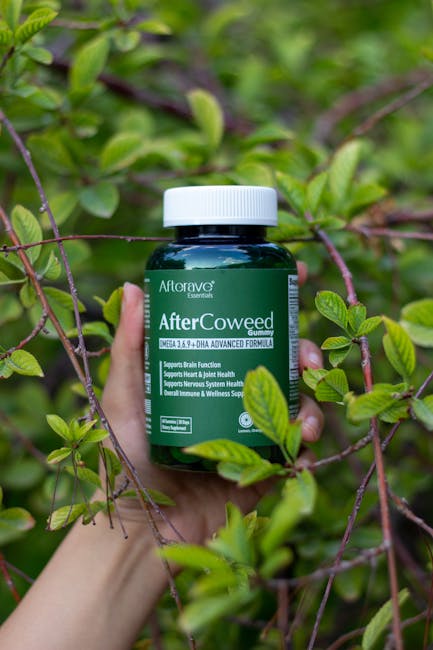Introduction
Leaky gut syndrome, also known as increased intestinal permeability, is a condition where the lining of the small intestine becomes damaged, allowing undigested food particles, toxins, and bacteria to leak into the bloodstream. This leakage can trigger an inflammatory response and contribute to a range of health issues, including autoimmune diseases, allergies, and chronic fatigue. The Paleo diet, which focuses on whole, unprocessed foods, has gained popularity as a potential dietary approach for repairing leaky gut and addressing related immune dysfunction. This article explores the role of the Paleo diet in supporting gut health and immune function.
The Paleo Diet and Gut Health
Understanding Leaky Gut Syndrome
The intestinal lining acts as a barrier, selectively allowing nutrients to pass through while preventing harmful substances from entering the body. Factors such as:
- Chronic stress
- Poor diet (high in processed foods, sugar, and unhealthy fats)
- Certain medications (like NSAIDs)
- Gut infections (bacterial overgrowth, parasites)
…can compromise the integrity of this barrier, leading to leaky gut.
How Paleo Addresses Leaky Gut
The Paleo diet’s emphasis on whole, unprocessed foods directly addresses many of the factors that contribute to leaky gut syndrome. Key components of the Paleo diet that support gut healing include:
- Elimination of Grains and Legumes: These contain compounds like gluten, lectins, and phytates that can irritate the gut lining and impair nutrient absorption. Gluten, in particular, is a known trigger for inflammation and can exacerbate leaky gut.
- Focus on Nutrient-Dense Foods: The Paleo diet encourages the consumption of nutrient-rich foods such as meats, fish, vegetables, fruits, and healthy fats. These foods provide essential vitamins, minerals, and antioxidants that support gut health and overall well-being.
- Healthy Fats: Omega-3 fatty acids, found in fatty fish and certain nuts and seeds, have anti-inflammatory properties that can help reduce gut inflammation and promote healing.
- Absence of Processed Foods and Added Sugars: Processed foods often contain artificial additives, preservatives, and high amounts of sugar, all of which can negatively impact the gut microbiome and contribute to inflammation. The Paleo diet avoids these problematic ingredients.
The Importance of a Healthy Gut Microbiome
A balanced gut microbiome, the community of microorganisms living in the digestive tract, is crucial for overall health and immune function. The Paleo diet can positively influence the gut microbiome by:
- Providing Prebiotic Fiber: Non-starchy vegetables and fruits contain prebiotic fiber, which feeds beneficial gut bacteria.
- Reducing Inflammatory Triggers: By eliminating inflammatory foods like grains and processed sugars, the Paleo diet helps create a more favorable environment for beneficial bacteria to thrive.
- Supporting a Diverse Microbiome: A diverse gut microbiome is associated with better health outcomes. The variety of plant-based foods in a well-planned Paleo diet can contribute to this diversity.
Paleo and Immune Dysfunction
The Gut-Immune Connection
Approximately 70-80% of the immune system resides in the gut. Leaky gut disrupts this delicate balance, leading to chronic inflammation and immune dysfunction. When undigested food particles and toxins enter the bloodstream, the immune system recognizes them as foreign invaders and mounts an attack. This constant state of alert can lead to autoimmune diseases, allergies, and other immune-related conditions.
How Paleo Supports Immune Function
By addressing leaky gut and promoting a healthy gut microbiome, the Paleo diet can indirectly support immune function. Specifically:
- Reducing Inflammation: The Paleo diet’s anti-inflammatory properties help calm the immune system and reduce the risk of autoimmune reactions.
- Providing Essential Nutrients: Nutrients like vitamin D, zinc, and selenium, abundant in Paleo-friendly foods, are crucial for immune function.
- Stabilizing Blood Sugar: The Paleo diet’s focus on whole, unprocessed foods helps regulate blood sugar levels, which can improve immune function. High blood sugar can suppress immune cell activity.
Implementing Paleo for Gut and Immune Health
While the Paleo diet can be beneficial, it’s important to implement it correctly and consider individual needs:
- Focus on Quality Ingredients: Choose grass-fed meats, wild-caught fish, and organic produce whenever possible.
- Prioritize Vegetables: Include a wide variety of non-starchy vegetables in your diet.
- Hydrate Adequately: Drink plenty of water throughout the day.
- Listen to Your Body: Pay attention to how your body responds to different foods and adjust your diet accordingly.
- Consider Working with a Healthcare Professional: A doctor or registered dietitian can help you create a personalized Paleo plan that addresses your specific health needs. They can also help monitor your progress and identify any potential nutrient deficiencies.
Conclusion
The Paleo diet offers a potential dietary strategy for repairing leaky gut syndrome and addressing immune dysfunction by focusing on whole, unprocessed foods and eliminating common gut irritants. By reducing inflammation, promoting a healthy gut microbiome, and providing essential nutrients, the Paleo diet can support both gut health and immune function. However, it’s crucial to approach the Paleo diet with careful planning and consider individual needs to maximize its benefits and ensure a balanced and sustainable approach to long-term health. Consulting with a healthcare professional or registered dietitian is recommended, especially for individuals with existing health conditions.

The articles you write help me a lot and I like the topic http://www.kayswell.com
Thank you for your articles. They are very helpful to me. May I ask you a question? http://www.kayswell.com
Please provide me with more details on the topic http://www.kayswell.com
How can I find out more about it? http://www.kayswell.com
Thanks for your help and for writing this post. It’s been great. http://www.kayswell.com
Please tell me more about this. May I ask you a question? http://www.kayswell.com
Your articles are extremely helpful to me. Please provide more information! http://www.kayswell.com